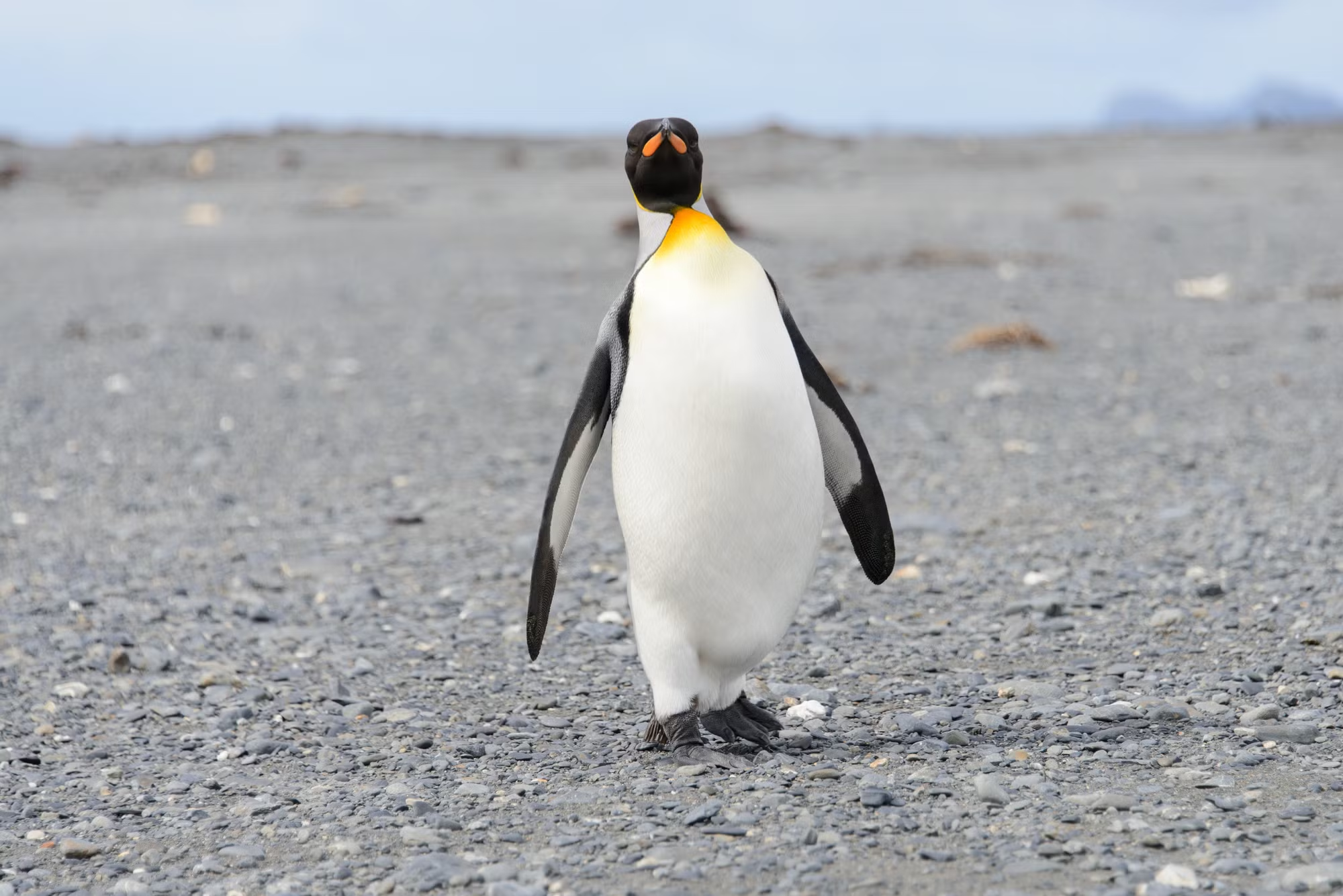An emperor penguin, nicknamed Gus, recently made headlines when he appeared on a beach in Denmark, Australia, over 3,000 kilometers from his native habitat in Antarctica.
This remarkable journey, believed to be motivated by food scarcity, left both locals and wildlife experts amazed. Gus’s appearance has sparked both intrigue and concern as scientists seek to understand what might have led him to undertake such an arduous journey.
The Arrival of Gus: A Rare Encounter on the Australian Coast
The sight of an emperor penguin waddling up the shores of Australia is something few could ever anticipate. When beachgoer Aaron Fowler spotted the large bird emerging from the waves, he was astonished.
Describing the moment, Fowler noted that the penguin’s impressive size and unusual presence immediately set him apart from the more common seabirds seen in the area.
Gus was around a meter tall and displayed no fear as he explored his unfamiliar surroundings. The penguin’s friendly demeanor endeared him to onlookers as he attempted a belly slide, only to realize the beach sand lacked the slipperiness of Antarctic ice.
While Gus’s journey made for a heartwarming spectacle, his appearance also highlighted the severe physical toll of his journey. He was visibly underweight, prompting experts to intervene.
Carol Biddulp, a bird caregiver with Australia’s Department of Biodiversity, Conservation, and Attractions, took Gus under her care, admitting she never expected to encounter an emperor penguin in such a condition.
Read : Argentina: The Country Famous For Its Wine, Food, Music And Dance
Getting Gus from the beach to safety was challenging, given his 23-kilogram weight. Despite being underweight, Gus was still formidable to handle, especially after his exhausting voyage.
The Harsh Realities of Gus’s Long Journey
Emperor penguins are known for their resilience, but Gus’s journey underscores the challenges penguins may face as they seek sustenance. Emperor penguins are typically restricted to the icy habitats of Antarctica, where they feed on fish, krill, and squid.
Their strong instinct to follow ocean currents can sometimes lead them into unfamiliar territories in search of abundant feeding grounds. Gus’s journey, which involved swimming through the Southern Ocean, suggests he may have been following food-rich currents that veered northward, ultimately bringing him to Australia’s shores.

This journey is emblematic of the harsh realities faced by many marine animals as environmental changes impact ocean currents and food availability. A recent study by the University of Western Australia’s research fellow Belinda Cannell indicates that currents rich in food are not as consistent as they once were.
Rising sea temperatures and shifting marine ecosystems disrupt the habitats of marine species like penguins, who are forced to travel farther to sustain themselves. Gus’s journey may have been a bid to survive, with food scarcity in Antarctica potentially driving him to explore areas far beyond his usual range.
Conservation Efforts and the Future of Emperor Penguins
As conservationists care for Gus, his journey has drawn attention to the broader environmental issues affecting emperor penguins. These iconic birds are highly vulnerable to climate change, as warming ocean temperatures and melting ice caps reduce the availability of their natural habitats and food sources.
According to the International Union for Conservation of Nature (IUCN), emperor penguins are now classified as a near-threatened species. The IUCN predicts that if global temperatures continue to rise, up to 80% of the world’s emperor penguin population could decline by the end of the century.

Emperor penguins depend on sea ice not only for breeding but also for accessing food sources that gather beneath the ice. As sea ice diminishes, penguins are forced to travel farther distances, which places them at greater risk of malnutrition and exhaustion.
For Gus, the combination of food scarcity and unpredictable currents may have driven him to Australia in search of sustenance. His journey underscores the need for stronger climate action to preserve the delicate ecosystems these animals rely on.
Efforts to protect emperor penguins are underway, with researchers and conservationists advocating for stricter climate policies to curb global warming and preserve Antarctic ecosystems. Reducing carbon emissions, protecting marine life, and mitigating overfishing can help maintain the delicate balance of the Antarctic food web.
Gus’s arrival in Australia serves as a reminder of the interconnectedness of global ecosystems and the impact that climate change can have on species even thousands of kilometers away.

